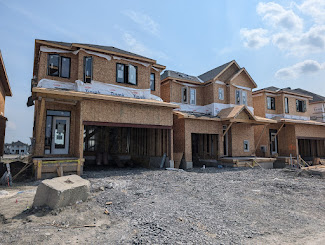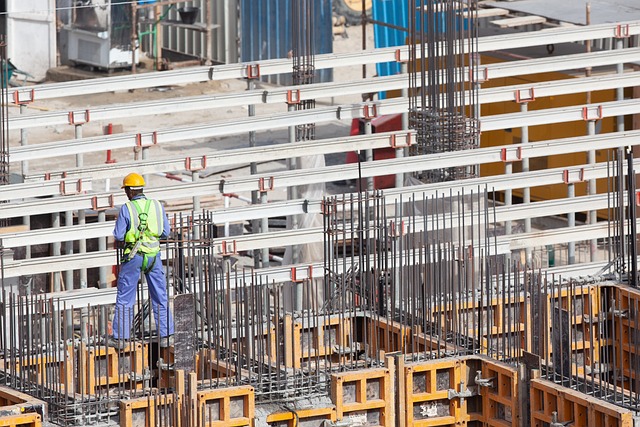The real estate sector is undergoing a significant transformation, driven by the increasing importance of Environmental, Social, and Governance (ESG) factors. In Canada, this shift is more pronounced as investors, developers, and policymakers recognize the value of integrating sustainable practices into real estate investments. ESG considerations are no longer optional; they are becoming essential criteria for evaluating the long-term viability and profitability of real estate assets.
Incorporating ESG principles into real estate decisions is a strategic move that aligns with global sustainability goals, addresses social inequalities, and ensures robust governance practices. As Canada’s provinces each bring unique challenges and opportunities to the table, understanding how ESG factors are shaping real estate investments across the country is crucial. From implementing green building standards to fostering community-centric developments and adhering to strict governance frameworks, the real estate landscape in Canada is rapidly evolving.

Environmental Initiatives in Canadian Real Estate
As environmental sustainability becomes a central focus in global policy discussions, Canada’s real estate sector is witnessing a significant shift towards greener practices. Investors and developers are increasingly prioritizing environmentally responsible projects, recognizing that sustainable real estate not only mitigates environmental impact but also enhances long-term asset value. Across the country’s provinces, various initiatives and certifications are guiding this transformation, ensuring that new developments meet stringent environmental standards.
Sustainable Building Practices and Green Certifications
One of the most prominent trends in Canadian real estate is the adoption of green building practices. Certifications such as LEED (Leadership in Energy and Environmental Design) and BREEAM (Building Research Establishment Environmental Assessment Method) are becoming standard benchmarks for new developments. These certifications assess buildings on various environmental criteria, including energy efficiency, water usage, indoor environmental quality, and materials selection.
In British Columbia, for instance, Vancouver has emerged as a leader in green building practices. The city’s Green Building Program requires new construction projects to meet high energy efficiency standards, aiming for near-zero emissions by 2030. Similarly, Ontario’s Toronto Green Standard sets performance measures for new buildings to promote sustainable site and building design, energy and water efficiency, and solid waste diversion.
Provincial Case Studies: Leading the Way in Environmental Sustainability
British Columbia and Ontario are not alone in their green building efforts. Quebec has also made significant strides with the EcoPerformance program, which supports energy efficiency and greenhouse gas reduction projects in commercial and institutional buildings. Alberta, traditionally known for its oil and gas industry, is now seeing a rise in sustainable real estate projects, particularly in Calgary and Edmonton, where developers are increasingly incorporating green roofs, solar panels, and energy-efficient systems into their designs.
A notable example is the University of Calgary’s MacKimmie Tower, a net-zero carbon building that has set new standards for sustainable architecture in Alberta. This project exemplifies the province’s potential to balance economic growth with environmental responsibility, even in regions traditionally associated with high carbon footprints.
The Financial Incentives of Green Building
Beyond environmental benefits, sustainable building practices are also financially rewarding. Green buildings often attract higher rental rates, enjoy lower vacancy rates, and have reduced operating costs due to energy efficiency. These factors make them appealing to investors who are increasingly aware of the long-term financial stability that ESG-compliant assets can offer.
Moreover, provinces like Nova Scotia and Manitoba have introduced incentives to encourage green building practices. In Nova Scotia, the Efficiency Nova Scotia program offers rebates and incentives for energy-efficient building upgrades, while Manitoba’s Commercial Building Envelope Program provides financial support for projects that improve building insulation and reduce energy consumption.
Social Responsibility and Community Impact
In addition to environmental sustainability, social responsibility is a crucial pillar of the ESG framework in real estate. In Canada, this focus on social factors is driving significant changes in how real estate projects are conceived, developed, and managed. Investors and developers are increasingly recognizing the importance of creating spaces that not only serve as profitable investments but also contribute positively to the communities in which they are situated.

Affordable Housing Initiatives
One of the most pressing social issues in Canadian real estate is the affordability crisis, particularly in urban centers like Toronto and Vancouver. In response, there has been a growing emphasis on developing affordable housing solutions that provide access to safe, quality living spaces for lower-income populations. Across the provinces, various initiatives are being implemented to address this challenge.
For example, Ontario has introduced the “More Homes, More Choice” initiative, aimed at increasing housing supply by streamlining the development process and reducing regulatory burdens. This initiative is particularly focused on affordable housing projects, ensuring that a greater number of affordable units are included in new developments. In Quebec, the AccèsLogis program provides financial support to developers of social and community housing, offering a model that balances affordability with sustainability.
Community Engagement and Development
Real estate developers in Canada are increasingly recognizing that their projects should serve the broader community, not just their investors. This realization has led to more thoughtful urban planning that prioritizes community needs, such as access to public spaces, local amenities, and transportation networks.

In British Columbia, the concept of “community benefit agreements” (CBAs) has gained traction. CBAs are contracts between developers and community groups that ensure real estate projects deliver tangible benefits to the local community, such as job creation, affordable housing, and environmental improvements. The city of Vancouver has been a pioneer in this area, with several high-profile projects incorporating CBAs as a key part of their development plans.
In Alberta, the Alberta Social Housing Corporation (ASHC) works in collaboration with municipalities and non-profits to develop housing projects that cater to vulnerable populations, including seniors, people with disabilities, and low-income families. These projects often include community spaces, social services, and other amenities designed to foster a sense of belonging and support within the community.
Provincial Policies Promoting Social Responsibility
Provincial governments across Canada are increasingly adopting policies that promote social responsibility in real estate development. For example, Manitoba has implemented the “Building Sustainable Communities Program,” which provides funding for projects that enhance local communities through social, cultural, and environmental initiatives. This program encourages real estate developments to integrate community-focused features, such as parks, recreational facilities, and cultural centers.
Nova Scotia’s Housing Nova Scotia initiative is another example of a province taking an active role in promoting socially responsible real estate development. This program focuses on creating mixed-income communities that provide affordable housing while also fostering diversity and social inclusion.

Governance and Regulatory Framework in Canadian Real Estate
Governance plays a pivotal role in ensuring that real estate investments adhere to ethical standards, transparency, and compliance with regulatory requirements. In Canada, the governance aspect of ESG is particularly significant, given the diverse regulatory environments across the country’s provinces. Investors and developers must navigate a complex landscape of provincial regulations, zoning laws, and building codes, all of which are designed to promote responsible and sustainable real estate development.
Provincial Governance Standards and Regulations
Each province in Canada has its own set of regulations and standards governing real estate development. These regulations are crucial in maintaining the integrity of the real estate market, ensuring that projects meet safety, environmental, and social standards. For instance, British Columbia’s Real Estate Development Marketing Act (REDMA) imposes strict disclosure requirements on developers, ensuring that prospective buyers receive comprehensive information about a project before making a purchase decision.
In Ontario, the Condominium Act governs the development and management of condominiums, a significant sector in the province’s real estate market. The act sets out requirements for the formation, operation, and management of condominiums, emphasizing transparency, accountability, and the protection of buyers’ interests.
Quebec’s Régie du bâtiment du Québec (RBQ) enforces building standards and codes across the province, ensuring that all construction projects comply with safety and environmental regulations. The RBQ’s stringent oversight has contributed to Quebec’s reputation for high-quality, safe, and sustainable real estate developments.
The Role of Governance in Risk Management
Good governance is essential for risk management in real estate investments. In Canada, governance practices help mitigate risks associated with real estate transactions, such as fraud, non-compliance with regulations, and unethical business practices. By adhering to strong governance standards, real estate firms can protect their investments and reputation, while also ensuring that they meet the expectations of investors and the broader community.
In Alberta, the Alberta Securities Commission (ASC) regulates real estate investments and securities, ensuring that companies operating in the province adhere to high standards of transparency and ethical conduct. The ASC’s regulations are designed to protect investors from fraudulent schemes and ensure that real estate investments are managed in a manner consistent with best practices in corporate governance.
Manitoba’s real estate market is governed by the Manitoba Securities Commission (MSC), which oversees the sale of real estate investments and enforces compliance with provincial laws. The MSC plays a critical role in maintaining investor confidence by ensuring that all real estate transactions in the province are conducted fairly and transparently.

Differences in Governance Practices Among Provinces
While all provinces in Canada have robust governance frameworks, there are differences in how these frameworks are implemented. For example, some provinces, like British Columbia and Ontario, have more comprehensive disclosure requirements, while others, like Alberta, focus on stringent enforcement of ethical standards in real estate transactions.
These differences can have a significant impact on real estate investments, particularly for investors and developers operating in multiple provinces. Understanding the nuances of each province’s governance framework is essential for successfully navigating the Canadian real estate market.
The Impact of ESG on Corporate Governance in Real Estate
The growing importance of ESG factors has led to changes in how real estate companies approach corporate governance. Many firms are now incorporating ESG criteria into their governance frameworks, ensuring that their operations align with broader social and environmental goals. This shift is not only a response to investor demand but also a recognition that strong governance practices are essential for long-term success in the real estate sector.
Across Canada, real estate companies are increasingly adopting governance policies that emphasize sustainability, social responsibility, and transparency. This trend is expected to continue as ESG becomes an integral part of the real estate investment landscape, both in Canada and globally.

The Future of ESG in Canadian Real Estate Investments
As the integration of Environmental, Social, and Governance (ESG) factors becomes more ingrained in the Canadian real estate sector, the future of real estate investments is poised for significant transformation. The ongoing shift towards sustainable and socially responsible practices is expected to shape the industry in profound ways, influencing everything from investment strategies to development practices and regulatory frameworks.
Emerging Trends in ESG and Real Estate
One of the most notable trends is the increasing demand for sustainable buildings. Investors are increasingly seeking out properties that meet high environmental standards, as these buildings are not only more energy-efficient but also tend to have higher occupancy rates and attract premium tenants. The trend towards green buildings is likely to accelerate as more provinces introduce stricter environmental regulations and as tenants and buyers become more conscious of their carbon footprint.
Another emerging trend is the growing importance of social factors in real estate investments. Developers are starting to prioritize projects that contribute to community well-being, such as affordable housing, mixed-use developments, and spaces that promote social interaction. This focus on social impact is expected to continue, particularly as younger generations, who place a high value on social responsibility, become more influential in the real estate market.
The role of technology in ESG is also becoming increasingly prominent. Innovations such as smart building technologies, which improve energy efficiency and reduce operating costs, are gaining traction. Additionally, digital platforms that enhance transparency and streamline compliance with ESG standards are likely to play a significant role in the future of real estate.
Provincial Leadership and Innovation
Canada’s provinces are expected to continue playing a crucial role in driving ESG innovation in the real estate sector. Provinces like British Columbia and Quebec, which have been leaders in environmental sustainability, are likely to push the boundaries further by introducing new regulations and incentives that promote green building practices. Meanwhile, provinces like Ontario and Alberta may focus more on social initiatives, such as increasing the availability of affordable housing and enhancing community engagement in real estate projects.
The interprovincial differences in ESG practices and priorities also create opportunities for innovation. For example, provinces could collaborate on best practices, share successful strategies, and work together to develop new standards that could eventually be adopted nationwide. Such collaboration could help harmonize ESG efforts across the country, making it easier for developers and investors to navigate the market.
The Role of Investors in Shaping the Future
Investors are expected to be at the forefront of driving ESG adoption in Canadian real estate. As ESG considerations become more critical to investment decisions, real estate firms will need to demonstrate their commitment to sustainability, social responsibility, and good governance to attract capital. This trend is particularly evident among institutional investors, such as pension funds and insurance companies, which are increasingly integrating ESG criteria into their investment strategies.
In the future, we can expect to see more real estate investment funds specifically focused on ESG-compliant properties. These funds will likely prioritize investments in green buildings, socially responsible developments, and companies with strong governance practices. The rise of such funds will further embed ESG principles in the real estate sector, creating a virtuous cycle where sustainable and socially responsible practices are rewarded with increased investment.

The Evolution of Regulatory Frameworks
As ESG becomes more central to the real estate industry, regulatory frameworks are expected to evolve accordingly. Governments at all levels are likely to introduce new policies and regulations that encourage or mandate ESG practices. For example, we may see stricter building codes that require higher energy efficiency standards, zoning laws that promote mixed-use developments, or tax incentives for projects that provide social benefits.
At the same time, there will likely be a push for greater transparency in ESG reporting. Investors, regulators, and the public are demanding more detailed and reliable information about how companies are performing in terms of ESG. This demand could lead to the development of standardized ESG reporting frameworks, making it easier for stakeholders to assess the ESG credentials of real estate investments.
Long-Term Impact of ESG on Canadian Real Estate
In the long term, ESG considerations are expected to fundamentally reshape the Canadian real estate market. Properties that fail to meet ESG standards may struggle to attract investment, while those that embrace sustainability, social responsibility, and good governance are likely to thrive. This shift will not only benefit investors but also contribute to the broader goals of environmental protection, social equity, and economic stability.
As Canada continues to lead the way in ESG integration, the real estate sector is poised to become a model for how to balance profitability with sustainability and social responsibility. The future of real estate in Canada is not just about building structures; it’s about building communities and creating a lasting positive impact on the environment and society.

The integration of Environmental, Social, and Governance (ESG) factors into the Canadian real estate sector marks a pivotal shift in how investments are approached and managed. As sustainability becomes an increasingly critical consideration for investors, developers, and policymakers alike, the real estate landscape is evolving to prioritize long-term environmental, social, and economic impacts over short-term gains.
Canada’s provinces are leading the charge in various aspects of ESG, from implementing rigorous green building standards to promoting social responsibility through affordable housing and community-focused developments. The diverse regulatory frameworks and innovative approaches across the country highlight the importance of local context in shaping ESG practices, while also offering a blueprint for national and global real estate markets.
Looking ahead, the continued emphasis on ESG is expected to drive significant innovation and transformation in the real estate sector. Investors will play a crucial role in steering the market towards more sustainable and socially responsible outcomes, while technology and regulatory advancements will further support the integration of ESG principles into every aspect of real estate development and management.
In a world increasingly defined by the need for sustainable and equitable growth, the Canadian real estate sector stands as a testament to the power of ESG in creating value that extends beyond financial returns. By embracing these principles, the industry is not only building for today but also laying the foundation for a resilient and prosperous future.
